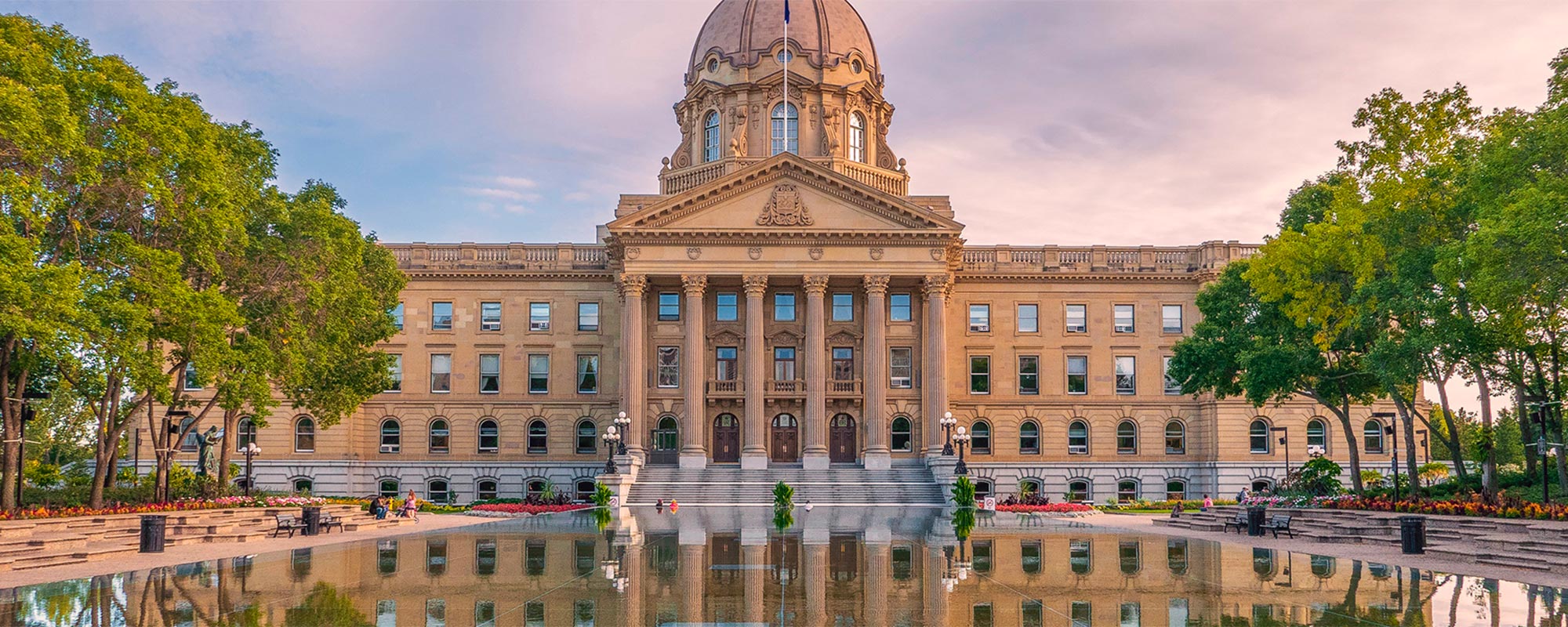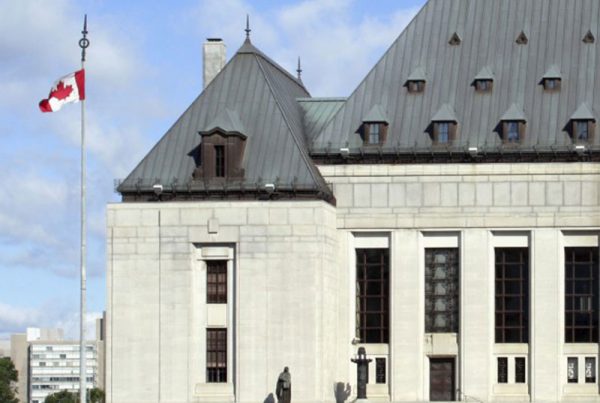August 27, 2020 Check Against Delivery Founded in 1964, the CCLA is a national, independent, non-profit, non-governmental organization dedicated to furthering fundamental human rights, civil liberties, the rule of law and government accountability. Its national membership includes thousands of paid supporters drawn from all walks of life. The underlying purpose of its work is to maintain a free and democratic society in Canada that balances civil liberties and competing public and private interests. The key point CCLA wishes to make about the changes that Bill 10 enacted is that they do not simply “clarify” (as govt has tried to argue) the powers that ministers have during emergencies – they expand those powers so that the Minister could add new provisions to a statute that don’t simply modify an existing provision. Cabinet Ministers can create new legal powers that limit individual liberties and freedoms. This vests in one person too much power that can do too much harm to our rights. This Ministerial overreach is exercised, by necessity, in secret, or in camera, without legislative oversight. CCLA’s concern is that this circumvents the legislative process and despite being temporary, it is both unconstitutional and it is harmful to your constituents. How is it harmful to your constituents? Why does this all matter? Because your constituents are free to go about their business how they see fit, subject to constitutional, legal limits. A man cannot show up and confine me or detain me or imprison me or my kids. A police officer cannot do that either, except to the extent that he is authorized by the law to mess with my liberty. That law permitting the interference with my freedom, that law needs to be a constitutional law, passed by the legislature, reviewable by the courts. If that democratic, constitutional step is skipped, there is a greater opportunity for error, greater chance of harm, and zero opportunity for accountability. If that step is skipped, then maybe the Minister gets the order made not at a full Cabinet meeting, but by way of a walk-around, such that the Attorney General gets no chance to advise as to its constitutional status. From a public health perspective, there is a scientific risk that arises when a public health order is made without a democratic process. In 2005, epidemiologist John Ioannidis of Stanford University in California suggested that most published findings are false; since then, a string of high-profile replication problems has forced scientists to rethink how they evaluate results. Meanwhile, statisticians are looking for better ways of thinking about data, to help scientists to avoid missing important information or acting on false alarms. As Steven Goodman, a physician and statistician at Stanford, says: “Change your statistical philosophy and all of a sudden different things become important.” My point being that the science is constantly changing. When a new public health power is created and put before the legislature, there is an opportunity for Opposition members, and for journalists, to find public health professionals to comment or dissent from the proposed public health law. A debate is permitted. It may be that the Chief Medical Officer reveals during a media scrum that this new power lacked medical necessity or proportionality. We may find out that it’s just something that a police union wanted, or something that a tough-on-crime politician created for reasons having nothing to do with public health, or was based on the whim of a minister or premier. But if the new public health law is created by Cabinet order, which is by necessity in secret, in camera, then it’s done, and Cabinet solidarity causes the government to circle the wagons, and defend it at all costs, because reversing that decision is politically too costly. This is unlike a bill amendment, which is rarely a political calamity, and comes across as democracy in action. Most importantly, the legislative provision amended at clause by clause or otherwise at committee, has done no harm to peoples rights and freedoms. Nobody’s privacy or liberty has been robbed if a bill provision gets changed during debate of that bill. The Ministerial order, on the other hand, starts doing its harm sometimes before the public even knows it’s been put into effect. The transparency over new Ministerial orders and regulations is entirely open to manipulation – this requires the Committees special attention. CCLA is asking the Committee to recommend that a requirement for all orders under the Act be made public, in full, in a manner immediately accessible in a centralized location online that’s tweeted out by the gov’t, at the time they are executed. Currently under s 52.4 the requirement is way too loosey goosey, it says the gov’t “shall publish and make available the details of an order….in the manner the person considers appropriate”. These Henry VIII clauses offend the constitutionalized separation of powers between the legislative and executive branches of government that are foundational across the Commonwealth and elsewhere (including the United States and Ireland). That this risk is real, not theoretical, is evident from the Minister of Health’s reliance on the Amendments to issue Ministerial Order 632/2020, granting the Chief Medical Officer the authority to disclose individual persons’ health records to police services to enable police officers to determine whether they have been in close contact with an individual that has tested positive for COVID-19. The example given, of someone spitting on a police officer – was there an epidemic of people spitting on police, justifying this new law? Was this a hypothetical or anomaly? I.e., did it meet the necessity test. Was there any scientific evidence or data behind this Order? Most importantly, could the current laws have done the trick? Wouldn’t both parties need to be tested in any event, using a warrant, under existing laws? If not, why not? I.e., did it meet the proportionality test. Now, the constitutional arguments can indeed be made to the judiciary, and you may ask yourself why an MLA or the general public would be concerned with something so arcane as legal separation of powers. Is this just a formalistic technicality? No. Henry VIII clauses truly interfere with our democracy, your jobs, and the legislative assembly’s operations. In a word, it’s important for reasons of accountability. On a bill before the Assembly, you have to vote yea or nay, and that forms a record to which you are all held to account in the next election. But that democratic accountability is impossible if a new legal power is created behind closed doors by a Cabinet Minister. Requiring that new legal powers only be authorized by the legislature has an extremely important practical, democratic, public interest function. The business of your legislative assembly may not be watched closely by a majority of your constituents. But that business, that legislative debate, each day that it takes place, focusses the attention of provincial and sometimes national press galleries. It can create a momentum, I’d say a democratic momentum, which permits a public consensus to develop, through daily news and hourly broadcasts and social media. Question Period can become dominated by the subject of the legislation. This is what happened, two months ago, when the New Brunswick Premier announced that his government would drop its Bill 49 from the order paper, after the public outcry over the laws overreach of emergency powers. This is an instance of government protecting itself from its worst instincts, but more importantly protects the peoples’ liberties, and protects you, Government MLAs, from being held accountable by your constituents for something you never even voted for. For Opposition MLAs, you’re never given the opportunity to either slow the gov’t down or go on the record as opposing government action, if the new legal power never went before your Assembly.
About the Canadian Civil Liberties Association
The CCLA is an independent, non-profit organization with supporters from across the country. Founded in 1964, the CCLA is a national human rights organization committed to defending the rights, dignity, safety, and freedoms of all people in Canada.
For the Media
For further comments, please contact us at media@ccla.org.





